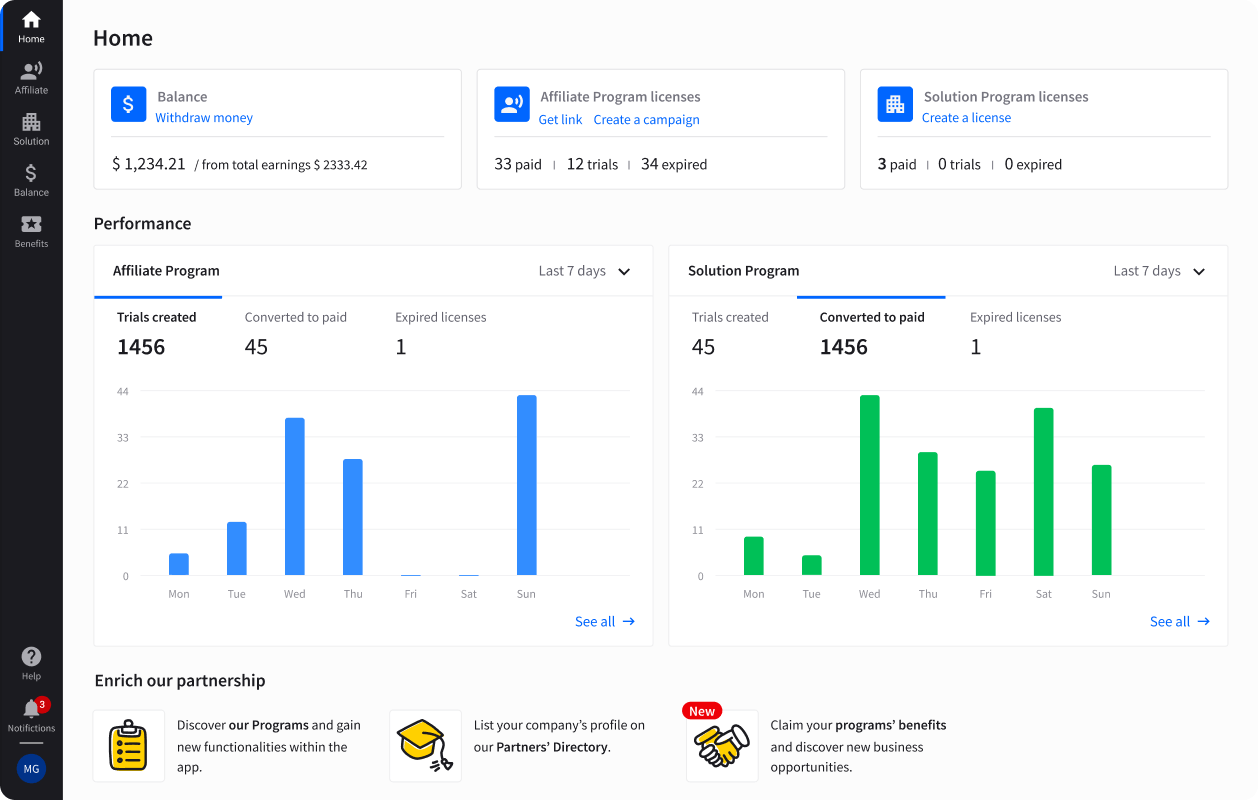Showing top 0 results 0 results found
Showing top 0 results 0 results found

Affiliate marketers make mistakes, just like everybody else. But there are several common things you can learn to avoid today instead of making them over and over again. What are these marketing mistakes? Let’s look into them and find ways to resolve them.
1. Picking The Wrong Product To Promote

There are millions of products of all types you can promote with affiliate marketing campaigns and, since it defines your success in this business, you should choose these products wisely.
When an affiliate product and niche are just right for you, it fuels you up and inspires you to create more marketing activities around it. You might even get hooked and end up bring more authentic in what you do.
One affiliate marketing mistake you should avoid is picking a potentially prominent product/niche just because you think there’s money in it. If the topic itself doesn’t drive you on its own, it’s not worth it.
Believe it or not, you likely won’t be natural at promoting an affiliate business niche that doesn’t excite you. So don’t make yourself a money slave and make sure you do something you like and care about. Only then will everything go smoother than you expect.
2. Too Many Products to Promote

When choosing affiliate products for your collection, you may be tempted to select too many of them. Being ambitious and over-enthusiastic is the default approach for most newbies.
But then, you’ll be less enthusiastic when you get distracted because you have too many things on your mind and you can’t even figure out what to do with your hands.
So that makes selling too many products at once the second common affiliate marketing mistake. It’ll eat up your time and decrease its value so that you might bring in fewer affiliate sales.
Smart people bet on quality, not quantity, so start small.
Pick a handful of excellent products and make sure to focus all your enthusiasm on them.
Commit more time to a single product; it’s easier to turn your endorsements and reviews into desired actions - meaning affiliate sales.
And remember, you can always expand product by product and grow your business over time. Make sure that you give each campaign the individual attention it needs to succeed.
3. Designing A Poor Quality Website

A low-quality website is always a bad idea.
Low standards will quickly translate into a low sales volume, so make this one a priority and approach the project professionally.
Of course, no one is telling you to build a perfectly user-friendly site from scratch when you aren’t even an experienced web designer. But you don’t have to.
There are lots of platforms, such as wordpress.org, that let you create your site for free.
Bad user experiences - such as slow page speed, too many ads, or a messy template will discourage visitors from your website and often frighten them away from your website, and that’s it. They won’t come back because your site won’t be associated with anything positive anymore (even when you improve it later on).
It’s like regular shopping. People prefer a nice shopping environment and experience, so much so that they’re even more likely to spend more. Shoppers prefer a clean and friendly grocery with cheerful and helpful staff members rather than going to an overcrowded mall where they get lost among all the shelves, not knowing where anything is.
When you’re in the process of building your site, bear all these things in mind.
Consider all the websites you like and try to identify why. Think of the actions you expect from your visitors to take on your site and make sure you implement them.
Answer these questions:
- Is my site easy to navigate?
- Are all sections easy to find?
- Does the design highlight the on-site elements?
- Do I have clear calls to action?
- Does a single page call for one single action?
- Is my website’s design as simple as it gets?
- Is my website responsive?
Your site doesn’t need to be anything special - you don’t have to make it super interactive - but it has to be super simple. It’s a pattern that works for everybody.
Anyway, starting a new site is a massive project, so make sure you keep this in mind to help you get into it.
4. Not Providing High-Quality Regular Content

Another typical mistake affiliate marketers make is that they forget to provide regular, high-quality content.
And that’s a big problem. Content is crucial for successful marketing. No matter what your site is about - product reviews, comparisons, different use cases - each piece of content contributes to your online sales directly or indirectly.
A common mistake affiliates make is publishing content that’s not insightful or actionable. Therefore anytime you want to write a piece of content, make sure there is a purpose and solution.
Put yourself in the shoes of your potential buyers and imagine what they would be interested in.
After all, you want to get people hooked with a great story and cool facts, right?
Then make sure to post content regularly - even once a week is a good frequency.
5. Not Tracking Website Performance

The next common mistake affiliate marketers are guilty of is not using a tracking tool.
Without it, it’s hard to tell you’re doing marketing.
Marketing is all about tracking and optimizing your data. You need to observe the cause and effects in what you do and do more of what’s working for you. Recognizing successful patterns is essential for your success.
So make sure you deploy Google Analytics (or a similar tool) to measure your website performance and decide what campaigns to keep and which to ditch.
6. Not Learning

When working as an affiliate marketer, you need to keep your eyes wide open for news in the business. As it’s the online world, change happens quickly, and sometimes you can’t even keep up with the standards.
So it’s a challenge, and you should always be well informed about online trends, ranking factors and any online news that might affect your online presence and SEO ranking.
Educate, read online guides and make sure you know what’s going on.
7. Not Trying New Things Out

When launching new and different campaigns like ads on social media, Adwords, or email campaigns, it’s important to test different versions of copy.
Delivering the same message won’t teach you anything new. Try different things, especially in the form of A/B tests.
Don’t get used to how things are and never accept the status quo. Explore your marketing opportunities and experiment towards perfection.
And there is a lot to test out:
- Plain vs. HTML emails
- Two different subject lines that can hook your user base
- Same pain point, but approached differently for the same buyer persona
Besides, segment your user base and be sure to create a personalized message for each group of users.
Then maybe one day you’ll find the path to market products like a pro and sell your products like crazy.
I hope you liked this article! Do you have something to add? Any other common affiliate marketing mistakes come to mind? Let us know in the comments below.
Happy marketing!



